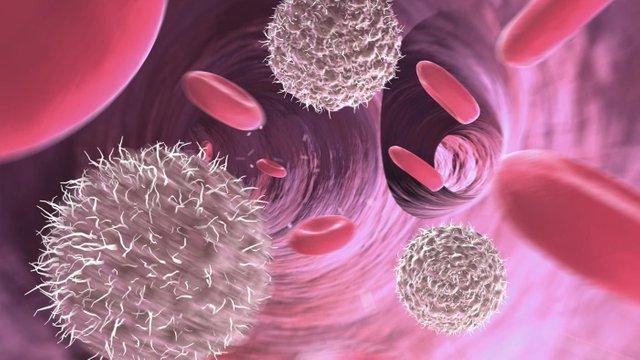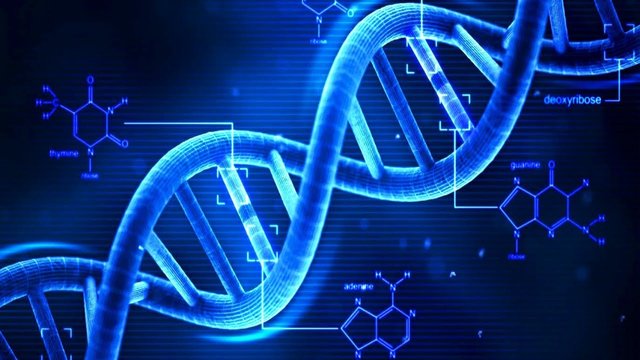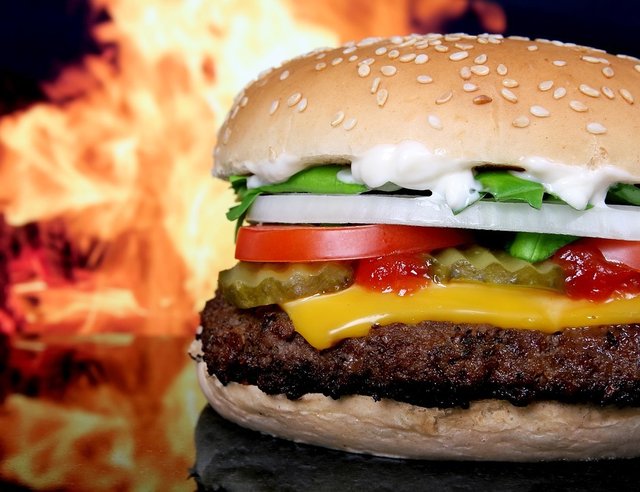A recent study by the University of Bonn shows that the immune response to a diet high in fat or calories is similar to that of a bacterial infection. Of particular concern is that unhealthy food turns the defense of our body into aggression in the long run.

Even after switching to proper nutrition, the inflammation associated with the immune response will be more pronounced. This long-term change can affect the development of atherosclerosis and diabetes - a disease that scientists have long associated with the "Western diet".
For a month scientists kept mice on the so-called "Western" diet: a lot of fat, a lot of sugar and a little fiber. As a result, the animals developed a strong inflammatory response, almost as after bacterial infection.
"An unhealthy diet led to an unexpected increase in the number of certain immune cells in the blood of mice, in particular granulocytes and monocytes, which was a sign of the presence of the precursors of immune cells in the bone marrow," explains Annette Christ, researcher at the Institute of Congenital Immunity. To better understand these unexpected results, precursor cells were isolated from the bone marrow of mice.
"Genetic studies have shown that the Western diet has indeed activated a large number of genes in progenitor cells, including genes responsible for proliferation and maturation," says Professor Joachim Schulze of the Life & Medical Sciences Institute (LIMES) of the University of Bonn and the German Center neurodegenerative diseases.
Thus, fast food makes the body quickly awaken from hibernation a huge and powerful army. When the researchers suggested to the rodents their typical grain diet for the next 4 weeks, the acute inflammation disappeared ... which can not be said about the genetic reprogramming of immune cells and their predecessors. Even after 4 weeks of proper nutrition, many of the genes that "joined" in the fast-food period of the experiment were still active.
Sensors in immune cells
"Recently it was found out that innate immunity has a kind of memory," explains Professor Dr. Eike Lutz, director of the Institute of Congenital Immunity of the University of Bonn. "After infection, the body's defenses remain in a state of alarm, so they can react faster to a new attack." Experts call this "innate immune preparation". In mice, this process was not caused by bacteria, but by unhealthy diet.

Scientists have also been able to identify the "fast food sensor" in immune cells. They examined the blood cells of 120 subjects. In some of them, the innate immune system demonstrated a particularly strong preparation effect. In these subjects, researchers found genetic evidence of the presence of so-called inflamasomes.
Inflamasomes are key intracellular signaling complexes that recognize infectious agents and other harmful substances. How exactly inflamasomes such as NLRP3 recognize the use of unhealthy products? It remains to be seen.
Interestingly, in addition to the acute inflammatory response, it also has long-term consequences for the immune system: the activation of the Western diet changes the way the genetic information is packaged. Genetic material is stored in DNA. Each cell contains several strands of DNA, which together make up about two meters. However, they usually wrap around certain proteins in the nucleus, and therefore many genes in the DNA can not be read, because they are simply too inaccessible.

Unhealthy eating leads to the fact that some of these usually hidden DNA fragments are "untwisted", like a loop hanging from a wool ball. This area of genetic material can be read much easier, as long as this time sweep remains active. Scientists call these phenomena epigenetic changes. "Damage causes such epigenetic changes," says Dr. Lutz. "Consequently, the immune system responds even to small irritants with more severe inflammation."
Dramatic consequences for health
These inflammatory reactions can, in turn, accelerate the development of vascular diseases or type 2 diabetes. For example, with atherosclerosis, typical vascular deposits - plaques - consist mainly of lipids and immune cells. The inflammatory reaction directly affects their growth, as newly activated immune cells constantly migrate into altered vessel walls. When plaques become too large, they can come off and be carried away with blood. Possible consequences: a stroke or a heart attack.
Thus, poor nutrition can have serious consequences. In recent centuries, the average life expectancy in Western countries has steadily increased. For the first time in a long time, this trend will be disrupted: people of the current generation have a smaller life expectancy than their parents. An unhealthy diet and weak physical activity are likely to play a decisive role in this.

"Therefore, these conclusions have important social significance," says Dr. Lutz. "The foundations of a healthy diet should become a much more important part of education than at present, only in this way can we instill in children a culture of healthy nutrition in spite of all the temptations of the food industry." Children have the choice. "We must allow them to make informed decisions about their eating habits."
The study involved groups from the Netherlands, the USA, Norway and Germany. Lutz and Schulze are members of the ImmunoSensation group, which examines the innate immune system. Dr. Lutz is considered the leader in the field of innate immunity and he received the prize of Gottfried Wilhelm Leibniz for his work in December 2017. This award is considered one of the most prestigious scientific awards in Germany.